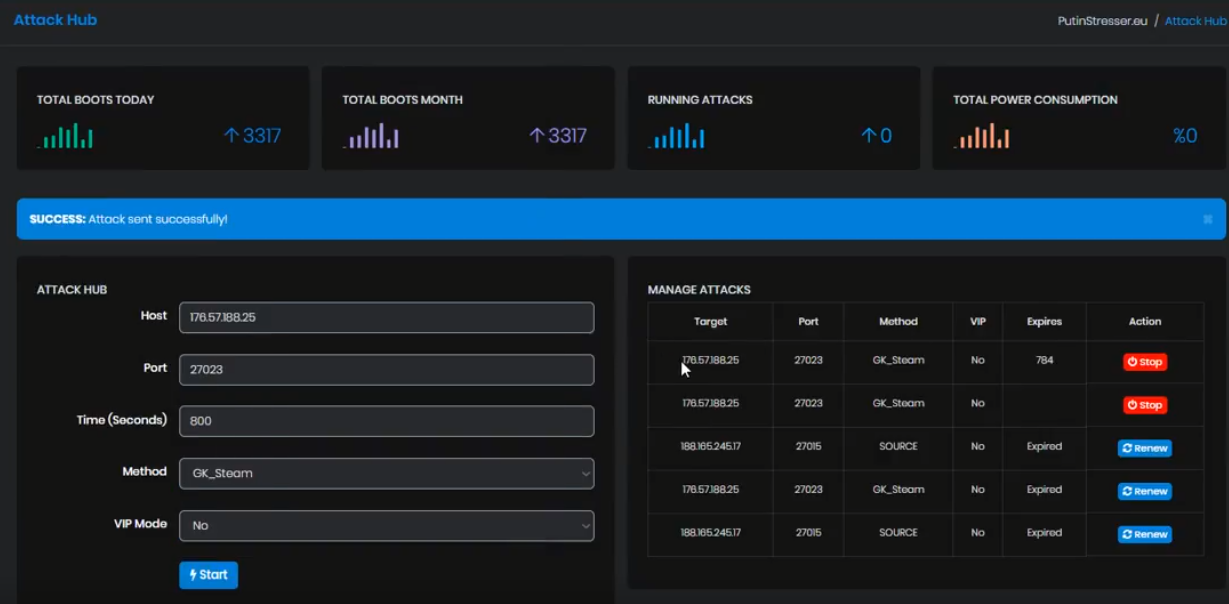
If it is, it will respond with a SYN-ACK (which acknowledges the SYN message, and means “sure, go ahead”)ģ. The first computer sends a “SYN” message (which means “ready to talk?”), to see if the receiver is ready to communicate.Ģ. Here’s how the handshake is supposed to go…ġ. The SYN flood exploits a feature of the TCP protocol called the “handshake.” This is a simple procedure that all computers use when they connect via TCP. For instance, there is a SYN flood, which aims to block TCP. Then there are the attacks that target the transport protocols. DDoS attacks exploit these weaknesses to bring the elaborate engine to a grinding halt. And just like a complex engine, more moving parts mean more things that could go wrong. All of these different protocols work together to provide services over the Internet. TCP and UDP both rely on the Internet Protocol or IP. Just like HTTP riding on top of TCP, there are lots of other application protocols built on UDP, such as DNS (which is used to turn a domain name, such as, into an IP address, such as 173.194.45.70). Streaming video and Internet Telephony, on the other hand, use a different protocol called UDP. TCP handles making sure that all the data from the browser arrives to the browser, and in the right sequence. HTTP is an application protocol (because it’s used by the browser and the server, which are both applications.) But HTTP itself relies on a lower-level protocol, called TCP (Transmission Control Protocol) which is a transportation protocol. For instance, a web server uses HTTP to receive requests from a web browser and send the desired files. But I can tell you that there are several different protocols that work together to provide different services. So I won’t be able to go into too much detail about how these protocols work. Networking is a complex subject – it takes years of study to become an expert. If you are protected, then you may still be booted off-line – it depends on the strength of the attack, and the measures used to protect you, which brings us to why you should test your protection. If your website or network is unprotected against DDoS attacks, they’ll almost certainly succeed. There are even cases of gamers getting knocked off-line by a sore loser. And when I say wrong, I mean wrong from the point of view of the attacker, naturally. Say the wrong thing on a web forum or tweet, and you’re a target. Getting in the crosshairs of a DDoS attack is easier than you think. So if they can’t login to the server, they do the next best thing – shut it down through a Denial of Service attack. But for most attackers, that’s not possible. If they have shell or FTP access to the server, it’s trivially easy to deface or delete the site. Whatever their reason, they’ll do whatever they can to take the site down. They could be competitors, disgruntled employees, or just someone with a chip on their shoulders. From natural disasters to mistakes made by an engineer, there are probably thousands of ways a site could be taken off-line accidentally.Īnd then there are the deliberate malicious actions of people who want to see the site fail.

There are plenty of things that can take a website offline. Making sure the site is available when someone wants to access it is a vital concern. In the case of web services and SaaS providers, it’s also the primary method of delivering a paid service. No refund can be made.A website is a considerable investment and represents the public face of an organization or individual. If you any issue with our services, open a ticket, our staff will answer you in a few hours. If you buy on stresslab.sx, you accept our terms of conditions.

If you break our TOS, your account will be permanently banned from our services. The terms of services will be valid from your first use of our services. Attacking government websites (.GOV) is strictly forbidden! Use this service only on your own server/network, if this term is broken, your account will be permanently banned. You are not authorized to use our services for interrupt the connectivity of a server/home connection/network. We purposes our Server Stress Testing services to individuals and business only for personal network security testing. We do not keep your login and attack logs. The confidentiality of our customers data is a priority. By using the Server Stress Testing services provided by stresslab.sx, you agree to be responsible for all actions and consequences.


 0 kommentar(er)
0 kommentar(er)
